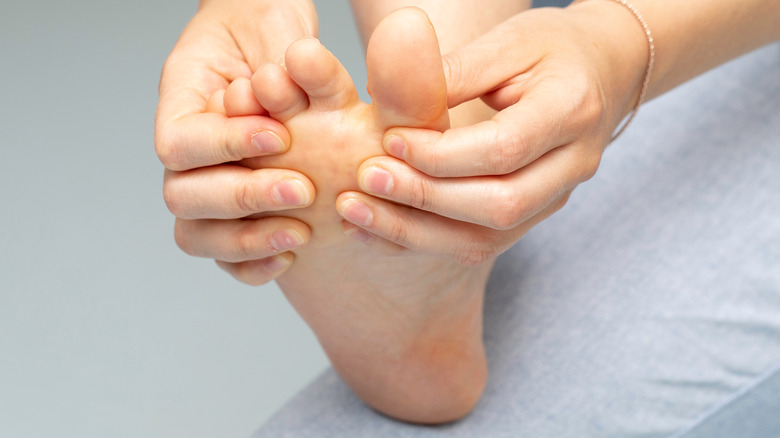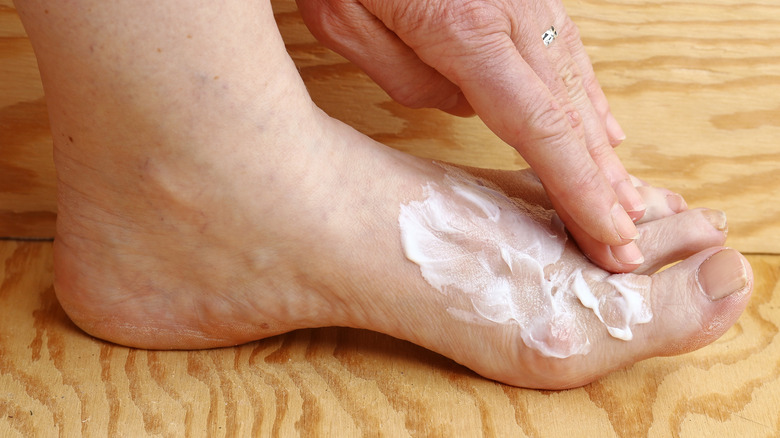The Best Way To Get Rid Of Athlete's Foot
Athlete's foot, also called tinea pedis, is a fungal infection that typically occurs between the toes (via Mayo Clinic). It leads to a red, scaly rash that can be very itchy, especially right after socks and shoes are removed. The infection may also cause small blisters to form and spread across the foot to the toenails and soles of the feet (via Harvard Health Publishing). In advanced stages, feet may ooze pus and emanate a foul smell. Athlete's foot is most common in athletes or people whose feet sweat frequently in tight-fitting shoes. It is contagious and can be picked up in locker rooms at the gym, swimming pool changing areas, or any place that is damp with a lot of foot traffic.
Most cases of athlete's foot can be treated with over-the-counter antifungal treatments, which come in the form of ointments, creams, powders, and sprays. If the infection does not respond to these treatments, a doctor can prescribe prescription-strength medication. When athlete's foot is severe, antifungal pills taken orally may be needed.
How to prevent athlete's foot
There are several steps you can take to prevent athlete's foot. First, wash your feet with soap and water every day and make sure to dry them thoroughly, especially between the toes (via Healthline). Change your socks regularly. If your feet get very sweaty, change out your socks more than once a day. Avoid going barefoot in public places and always wear waterproof sandals or shoes in public pools, showers, and locker rooms. Avoid wearing the same pair of shoes every day so they can dry thoroughly after each use and never share your shoes with others, as this increases the risk of spreading infection.
If you have a case of athlete's foot, all these measures can help ease symptoms and prevent a recurrence. It's also important not to scratch the rash. Instead, try soaking feet in cool water to relieve the itch. Use antifungal medications as directed, and if the infection does not get better within two weeks of self-treatment, see your doctor. However, if you have diabetes and believe you may have athlete's foot, you should proceed straight to your doctor as opposed to trying any OTC methods.


